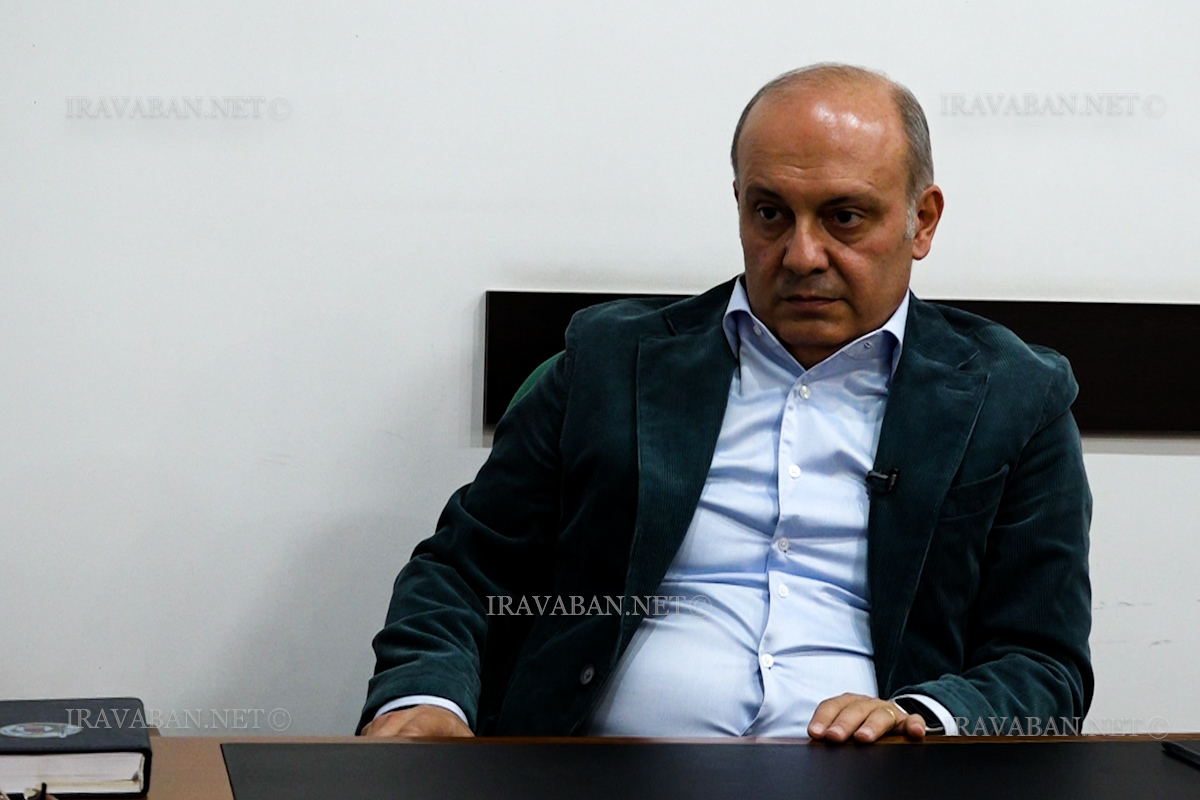Iravaban.net continues its series introducing law firms operating in Armenia. The latest interviewee in the “Armenian Law Firms” series is Mikayel Hambardzumyan, founder of “Mikayel Hambardzumyan and Partners” law firm, an advocate, and former Director of the National Security Service (NSS). He discussed the firm’s adopted policies, issues related to advocacy activities and profession, and other relevant matters.
-Mr. Hambardzumyan, after holding the highest position in the NSS system, was it challenging to return to student status, studying and graduating from the Advocacy Academy?
-It wasn’t challenging because law is close to my heart; it’s my profession. Although for the last three years I was, so to speak, detached from “pure” law and engaged in operational work, I’ve always had profound respect for the advocacy corps. Working in the NSS for decades, I’ve had numerous opportunities to interact with our colleagues engaged in advocacy across various criminal cases.
As far back as 2010, when I held the position of Deputy Head of the NSS Investigation Department, I aimed to participate in the examinations organized by the advocacy school and obtain a license. At that time, I wasn’t inclined to switch to advocacy work; I simply wanted to have a license. I haven’t engaged in advocacy activities yet, and this new job marks the beginning.
-You recently founded the “Mikayel Hambardzumyan and Partners” law firm. What are the main legal services provided by your company and their unique features? What principles will you follow in choosing cases?
-The company was founded just days ago. I decided to start this venture together with partner advocates, and we will focus on three main areas – criminal, civil, and administrative law. Of course, we will also provide consulting to clients who seek our services on security-related issues and other branches of law. We will strive to organize our work so that there are no gaps or unaddressed questions.
-As a former head of the NSS, you possess a wealth of information. How much does this help or hinder your work?
-In my opinion, it can only help. We clearly understand our “red lines.” Naturally, the information accumulated during my time in the security service cannot be used in this work to the detriment of any case or the people to whom that information relates. It has given us experience, knowledge, and professional skills, which, I am confident, we will utilize in our advocacy work.
-Can you recall an interesting case from your practice that has left a lasting impression?
-During my time in the security service, I was involved to some extent in almost all high-profile criminal cases. The cases were numerous and diverse. We mainly investigated criminal cases under our jurisdiction according to the Criminal Procedure Code. These included smuggling cases, espionage cases, and state treason cases. Additionally, on special instructions from the Prosecutor General, we also investigated criminal cases not typically under our jurisdiction. Singling out any specific case and detailing it wouldn’t be appropriate, but I would like to highlight one criminal case that relates directly to me.
During a preliminary investigation, a person who was a Russian citizen of Tatar nationality was involved in a criminal case. This individual was accused of espionage. When I was alone with this detained person in the office, he asked me for water. As I naturally brought the water to him, he attacked me and tried to take me hostage. Thanks to my resistance and the intervention of my colleagues, he was subdued. Later, he was so remorseful for his actions that while in detention, he drew a picture by hand related to the sea and gave it to me. I still keep that picture to this day.
Details in the video.
























